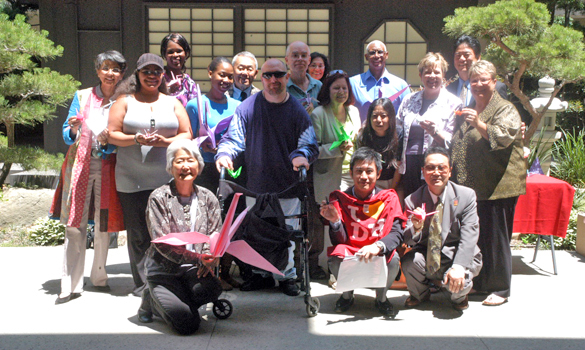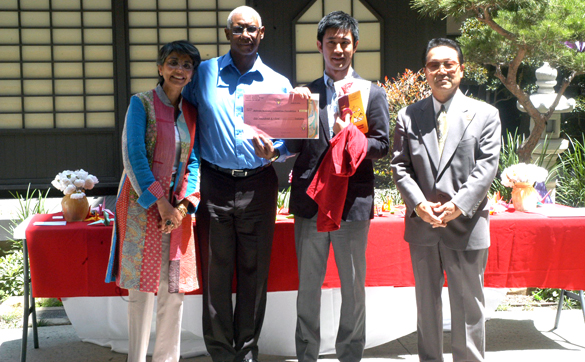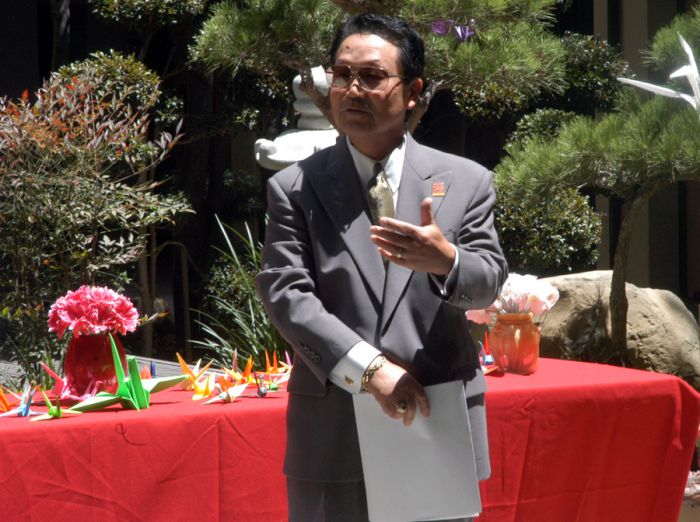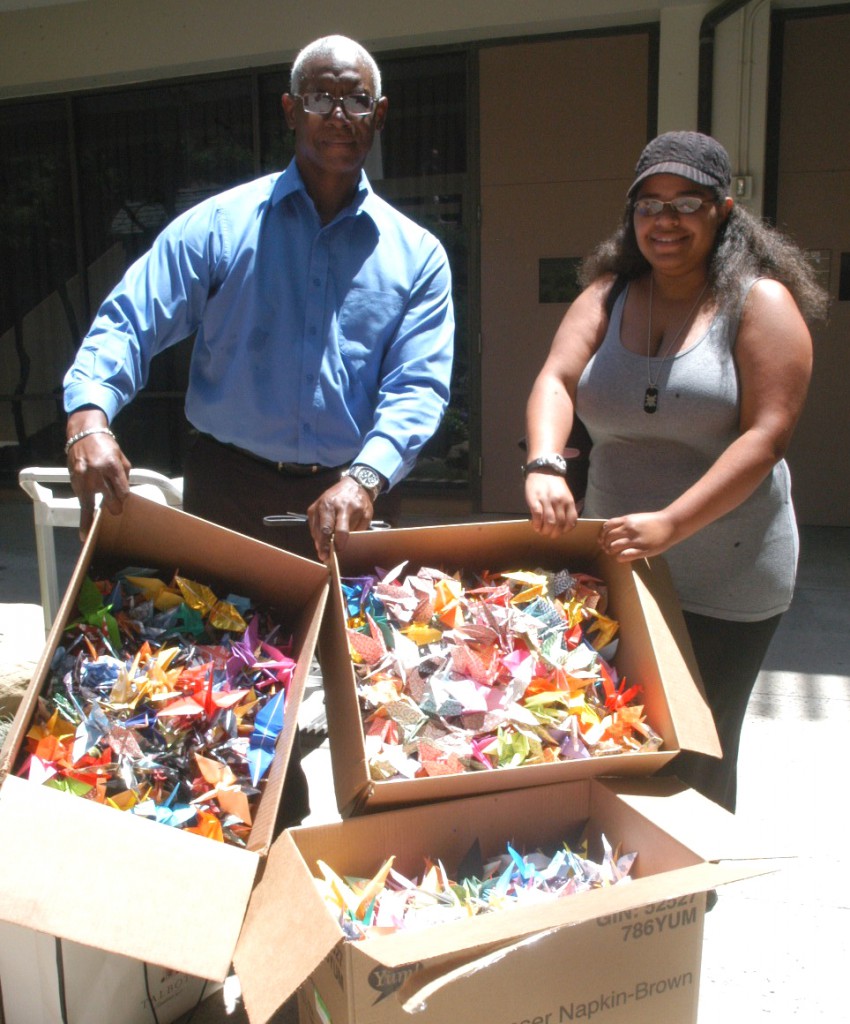Students at California State University, Dominguez Hills were at first perplexed by the idea of sending a senbazuru of 1,000 origami cranes to areas of Japan that are still affected by the 8.9 earthquake and consequent tsunami that occurred in March. However, the completion of more than triple that number of paper cranes, along with the campus’s collective effort of raising more than $1,000* [see fundraising update below] in aid served as a humanistic lesson in civics.

In addition to the symbolic gesture, the university raised monetary support for Japan through the efforts of the Office of Student Life (OSL), public administration students taught by emeritus professor Carolyn Harris, and professor of marketing Kirti Celly. A total of $609 was raised by students through donations and proceeds from a silent auction by OSL; Celly and her family matched the amount for a total of $1,218.* The funds will be given to Japan Platform, a non-governmental organization that focuses on emergency aid worldwide.
In a true cross-cultural exchange, it was Celly, a native of India, who introduced the CSU Dominguez Hills campus to the Japanese custom of folding cranes as a symbol of hope. She felt that such an exercise would become a teachable moment for students more than simply sending money or donations of goods to Japan.
“Normally, I would have just written a check,” she said. “But I thought as an educator, I had an opportunity to encourage the building of [cultural] awareness as well as participation in something that is bigger than myself.”

“It helped people realize that while [Japan] has its own culture, they’re a part of ours too,” said junior Victoria Grimes, who, with countless members of the campus community, helped to create the 3,247 paper cranes as symbols of goodwill.
On May 6 in the university’s Japanese Garden, a check was presented to Kurt Miyamoto, president and CEO of Quest International, a management consulting firm and Taisuke Kimoto, an attorney at ReedSmith, who both represented the Japanese Business Association of Southern California (JBA).
“This is a surprise to us,” said Miyamoto. “We were not expecting to receive such kind support from the students. We appreciate it very much.”
Miyamoto, who serves on the advisory board of the College of Business Administration and Public Policy, said that the JBA is a strong supporter of higher education.

“We have 450 Japanese companies doing business in Southern California and over 100,000 local employees,” he said. “We need many educated local employees, so we value the higher education system.”
Marco Dowell, director of the Office of Student Life, said that students were initially skeptical about the origami project and wondered why the campus didn’t just send financial support to the stricken areas.
“They kind of thought that making cranes was a silly idea,” he said. “They thought we should focus on money and clothes and personal hygiene items. But they learned that, [just like here], certain things lift [people’s] spirits. For the Japanese people, the cranes were one of those [things]. It showed a commonality that was meaningful. In the end, they went from ‘I’m learning how to make cranes’ to ‘this is going to end up somewhere in Japan and it’s going to mean something to someone.’”
A junior majoring in human resources management, Grimes says that aside from donating money or provisions, the meaning behind a gift of 1,000 paper cranes will hopefully give comfort to the Japanese who receive them.

“It’s the symbolism of the cranes themselves,” she says. “We can pray on behalf of Japan with that. That was really the thing I was trying to do, to show them that we’re here and trying to help somehow.”
Photo above, back row, L-R: Kirti Celly, professor of marketing and management; Sonja Daniels, associate vice president, Student Life, Enrollment Management and Student Affairs; unknown student; Donald Hata, emeritus professor of history; Tom Philo, archivist, University Library; Irene Vasquez, chair, Academic Senate and professor of Chicana/o studies; Marco Dowell, director, Office of Student Life; and Mitch Maki, acting provost
Middle row, L-R: Virginia Grimes, junior, human resources management; Dylan Lewis, audio/video media specialist, Instructional Media Services; Cheryl McKnight, director, Center for Service Learning, Internships and Civic Engagement; Yayoi Kato, lecturer, history; Kaye Bragg, acting dean, College of Business Administration and Public Policy; Susan Borrego, vice president, Student Life, Enrollment Management and Student Affairs
Front row, L-R: Hatsuko Mary Higuchi, artist; Taisuke Kimoto, attorney, ReedSmith; and Kurt Miyamoto, president and CEO, Quest International
——————
*6/14/2011 update: The final amount raised by CSUDH students came to $1,000. With matching funds from the Celly family, a total of $2,000 was raised to support Japan Platform.